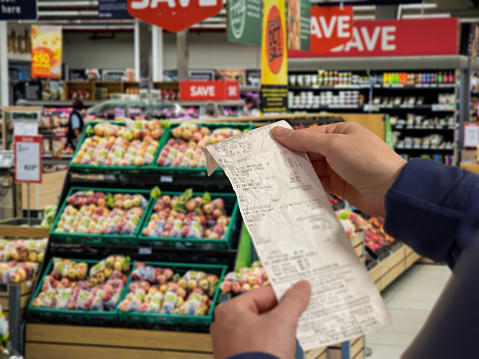About The Bill
The New York Food Safety and Chemical Disclosure Act (S1239-E/A1556-E) impacts everyone’s right to safe and affordable food. It’s essential we spread awareness about its potential effects on our health and communities. By informing ourselves and advocating together, we can make a significant difference in preserving our food security.
How the Food Safety and Chemical Disclosure Act Will Harm New Yorkers
How New York Bodegas, Delis, Family-Run Supermarkets, and Food Trucks Will Be Harmed:

Crushing Compliance
Small retailers like bodegas, food trucks, and family-run markets would face overwhelming new compliance costs and legal risks, even though they don’t manufacture the food they sell.
Higher Consumer Costs
With fewer products available and more red tape, prices would go up, hitting working families hardest.
Reduced Food Access
The bill would shrink food choices and drive up costs, making it harder for working families and underserved communities to access the groceries they rely on — especially culturally relevant, affordable options.
Disruption of Emergency Food Distribution
This bill adds red tape that delays distribution and burdens volunteers with paperwork instead of helping people. In emergencies, every hour counts — and this legislation gets in the way.
Disproportionate Impact on Ethnic Food Businesses
Small, culturally specific food stores and importers often can’t meet the bill’s costly requirements — forcing them to close, relocate, or stop selling traditional foods that serve immigrant and minority communities.
Shrinking Food Donations
Soup kitchens and food pantries would see food donations shrink as donors back away from the risk and red tape, leaving more New Yorkers hungry.
Common Questions About The Bill
The bill would require businesses to publicly disclose chemical information for many ingredients, even those already deemed safe by the FDA. It would also force new labeling, documentation, and chemical reporting standards that go beyond federal requirements.
Food donors would face legal and paperwork risks for giving away food that lacks proper chemical disclosures. Many would stop donating altogether to avoid penalties, devastating food assistance networks across New York.
This bill might lead to higher grocery prices and fewer affordable options for families, making it difficult for many to access nutritious foods. Awareness of these risks is essential for effective advocacy.
For more information on the bill and its implications, visit our About the Bill page or get in touch with us. We’re here to help you navigate these important issues.
They’re overwhelmingly opposed. Groups that represent small retailers, food pantries, communities of color, and immigrant families have spoken out against the bill because they fear it would harm everyday New Yorkers.
Small retailers—like bodegas, food trucks, and family-run grocery stores—would be held liable for selling non-compliant products, even if they didn’t produce them. This would mean more risk for local businesses and less accountability for large manufacturers.
No. The bill doesn’t improve the existing federal food safety system or introduce new health standards. It creates a duplicate system that adds cost and confusion without increasing actual safety.
Many culturally important foods, especially those imported or made by small producers, may not meet the bill’s complex requirements. Retailers could stop selling them entirely, reducing access to diverse, culturally significant foods in New York.
Not at all. In fact, it’s small businesses, community food programs, and immigrant-owned stores that would be hit the hardest. Large corporations have legal teams and compliance departments to navigate complicated regulations — but your local bodega or food pantry doesn’t. This bill shifts the burden onto the little guy, creating a system that punishes the people and places that make food accessible and affordable in our neighborhoods.
Sign up to join our coalition. Staying informed is key to effective advocacy, and we want you to be part of the conversation.
Ready to Get Involved?
Understanding the bill is just the first step. Now it’s time to join the fight to protect affordable, culturally relevant food for all New Yorkers. Add your voice, share your story, and access tools to make a difference.
